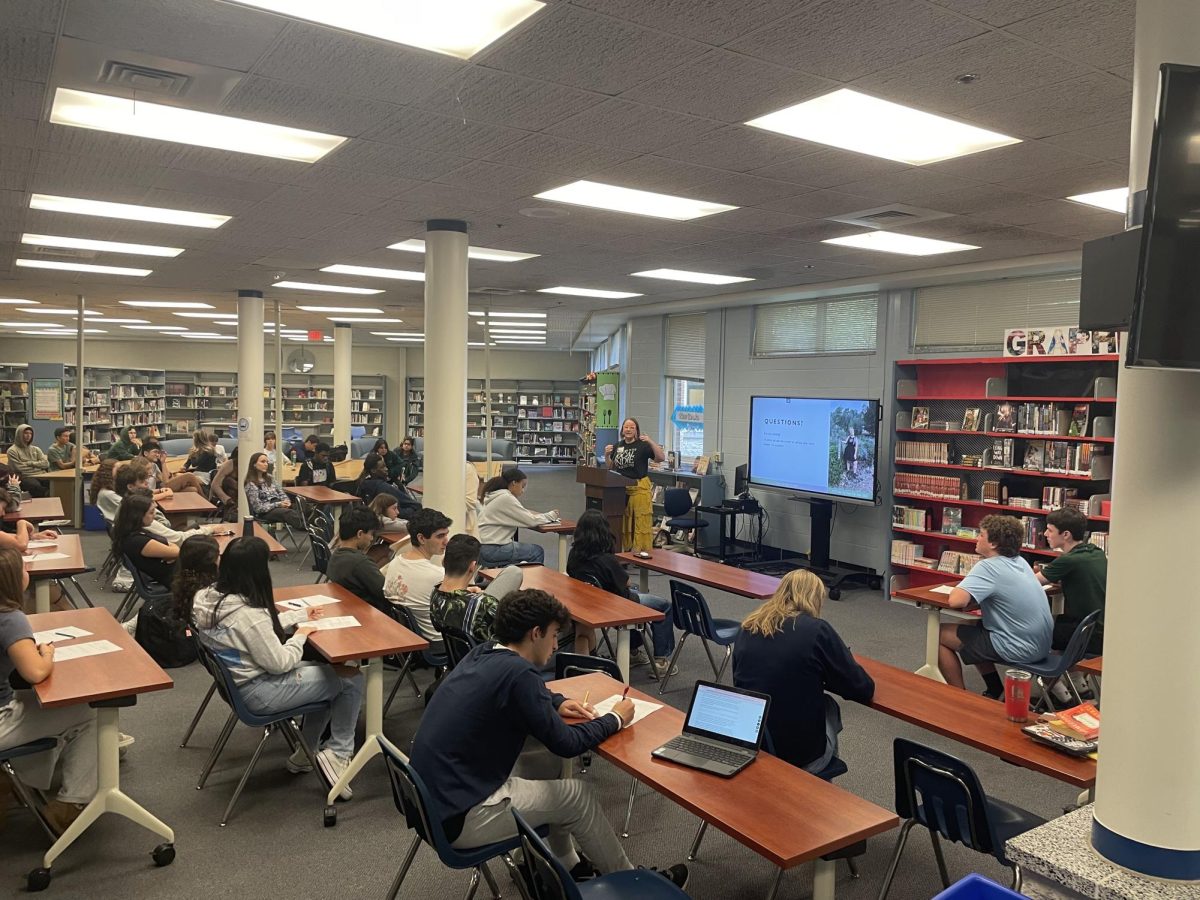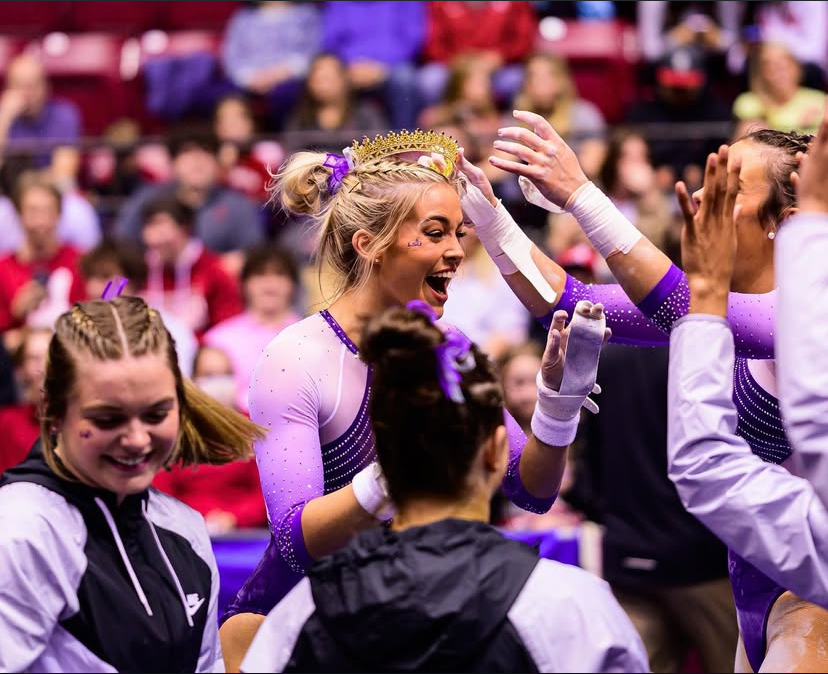Renowned author Jen Ferguson visited Whitman’s media center to discuss her latest novel “A Constellation of Minor Bears,” Sept. 30.
Ferguson gave a speech about her experiences as an author with Indigenous heritage, followed by 20 minutes for students to ask questions. Media center staff gave a copy of the novel to all students who asked questions.
The young adult novel follows three teenagers — Molly, Hank and Tray — on a journey along the Pacific Crest Trail. Ferguson immediately sparks conflict when Molly’s brother, Hank, suffers traumatic brain damage from a fall while rock climbing. Tray was present during the accident and a small part of Molly blames him for not being able to help, even though she knows he couldn’t have done anything.
Throughout the novel, Ferguson dives into each character’s imperfections and insecurities. Molly is of Indigenous heritage, overweight and self-conscious of how others perceive her, while her newly disabled brother Hank is facing the challenges of memory loss.
During the event, Fergeson spoke about her goals as a writer and the messages she wants to send. She said she aims to create relatable stories that resonate with a wide audience.
“I want to write about teenagers who are going through real things, and also who are allowed to be flawed, especially when you write about marginalized characters,” Fergeson said during her speech.
Ferguson is a feminist activist with Metís heritage, which she loves incorporating into her novels, she said. The Metís people are descendants of Canadian indigenous communities mixed with Euro-Americans. Although Fergeson hasn’t always been aware of her background, she began embracing it after learning about her ancestry, she said.
“My grandmother had a native parent, but it was dangerous to be native,” Ferguson said during her speech. “It meant that if you had kids, the government was going to take them away and send them to different, dangerous schools. I only found out in the seventh grade.”
Ferguson gave a brief history of the systemic discrimination of Indigenous people in Canada and how the government forced their children into boarding schools, where they would often face injuries and even death. Ferguson said that while the Canadian government has made progress on Indigenous rights, it still has work to do to uplift Indigenous people. She wants Indigenous children to feel accepted in society and to be able to relate to the novels they are reading.
Toward the end of her speech, she began discussing the harder times in her writing career when she even contemplated quitting but learned to persevere and overcome those challenges. She also shared ways to help authors convey a novel’s message or theme through different writing styles.
Senior Tristan Bonner is an aspiring author who recently started writing his own novels. He attended the event and said he learned a lot from Ferguson’s advice.
“I learned that it’s important to keep making progress on a story even when it’s hard,” Bonner said.
By attending the event and asking questions, students gained insight into Ferguson’s motivation for writing, her daily life and her personal beliefs.
Junior Mehmet Masatlioglu said Ferguson’s speech motivated him and he appreciated her representation of minorities.
“I find it very inspiring that she chose these people because indigenous heritage is not positively represented in America,” Masatlioglu said. “She is taking a great step to improving the situation.”
















